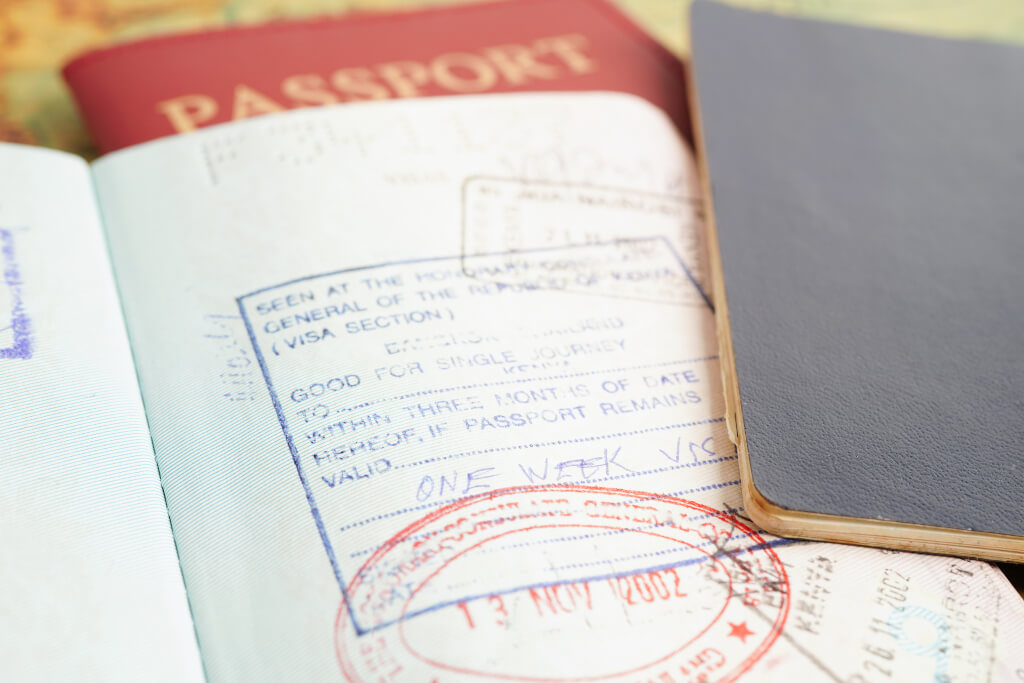Renouncing one’s citizenship is often seen as a straightforward administrative process. However, beneath the surface, it’s a complex dance of legal implications and societal expectations.
The Cost of Saying Goodbye
In the global north, renouncing citizenship comes with a price tag. For the Brits, it’s a mere £272, and the process is so streamlined, you can mail it in. Contrastingly, in the U.S, it’s a whopping $2,350 – a figure that has surged by around 400% over the past decade. And why? The surge in renunciations since 2010. But it’s not just about handing over the cash; you must make a personal appearance, pledge an oath of renunciation and get your Certificate of Loss of Nationality.
Statelessness: The Daunting Unknown
However, the thorny part comes in if you renounce your citizenship without a backup plan, i.e., without citizenship in another country. In bureaucratic terms, you become stateless. For such individuals, everyday tasks become herculean: renting a house, opening a bank account, securing employment or even crossing international borders. And in the U.S, the over four million stateless are under a constant shadow of arrest and detention.
Legal Battles and Hard-Fought Rights
Historically, U.S policies haven’t been kind to the stateless. Before 2001, immigrants, whether legal or stateless, faced the possibility of indefinite detention. It took a landmark Supreme Court ruling, Zadvydas v. Davis, to change that. Though born in a Lithuanian displaced person’s camp post-WWII, Zadvydas faced deportation after a criminal conviction.
With neither Lithuania nor Germany willing to accept him, his three-year-long detention led to the groundbreaking ruling. It stated that unless there’s a significant likelihood of the person being deported, detentions can’t exceed six months. Yet, today’s climate of aggressive deportations casts a cloud of uncertainty over the stateless.
A Global Phenomenon
Statelessness isn’t unique to the U.S. After the Soviet Union disintegrated, many Russians found themselves in a limbo in parts of Europe. Even if technically stateless, their movement within the Schengen Area remains unimpeded.
The dissolution of nations, coupled with ethnic and religious tensions and poor record-keeping, often leads to involuntary statelessness. Complex citizenship laws, such as citizenship based on lineage rather than birthplace, further complicate matters. Case in point: children born to stateless parents or out-of-wedlock in places like Saudi Arabia might find themselves stateless.
The Road Ahead
Today, an estimated 12 million people across the world are grappling with statelessness. The UN Refugee Agency has set an ambitious goal – to eliminate statelessness by 2024. But voluntary statelessness remains a quagmire. For instance, Brits must secure dual citizenship or have concrete plans to gain citizenship elsewhere before renouncing. If they don’t gain new citizenship within six months of renouncing, the UK reverts the renunciation, effectively preventing statelessness.
When Tax Laws Push You Away
Surprise! The spike in Americans ditching their citizenship around 2010 wasn’t about wanderlust. It was actually about dollars and cents – tax dollars, to be exact. Thanks to the 2010 Tax Reform for Foreign Account Holders Act, Americans living abroad found themselves trapped in a tricky tax tangle. In essence, many had to deal with (almost) double taxation. Before you start imagining Uncle Sam in a robber’s mask, remember: if you pay taxes in another country, the IRS will likely give you tax credits. The catch? The U.S. taxes based on your citizenship, not where you’re chilling with your coffee.
Banks Say, “No Thanks!” to Americans
If you’re an American dreaming of a Swiss bank account or even just a simple one in Australia, dream on! With the IRS asking foreign banks for deets on their American clients, many banks thought, “Why bother?” and started saying no to Americans. So, if you fancied yourself globetrotting without banking hiccups, renouncing your U.S. citizenship might’ve looked pretty tempting.
Even Bigwigs Drop the U.S. Tag
Heard of Boris Johnson? Before he was making headlines as British Foreign Secretary, he dropped his U.S. citizenship badge thanks to—you guessed it—taxes. Fun fact: being born in the U.S. to British parents made him an American. But when he discovered the U.S. wanted a slice of his British property pie, he said goodbye to his American tag. And yes, he paid up!
Renouncing U.S. Citizenship Has Some Strings Attached
Thinking of breaking up with Uncle Sam? Better clear your debts first. If you’re someone who’s earning big bucks or have assets worth more than $2 million, brace yourself for a hefty exit fee. Once you say bye-bye, your name gets cozy on the National Instant Criminal Background Check System and an FBI register. Oh, and if you’re under 18?
You usually can’t jump ship unless you’re super sure about it and show the U.S. you have a good reason. A quick heads up for those eyeing retirement benefits: renouncing might make you ineligible for some, but those Social Security checks? They’ll still find their way to you since you’ve earned them!
Born Stateless Under British Rule? There’s a Silver Lining!
Not everyone’s born with a citizenship badge. But if you’re stateless and born in a territory once under British rule, you might qualify for “British protected person” status. No, it’s not full British citizenship, but you get some cool perks like assistance from British consulates and a nifty British passport.
No Country? No Problem in the Olympics!
Dreaming of Olympic gold but don’t have a country to call your own? You can still sprint, jump, and swim! Stateless athletes can compete as “free athletes.” And guess what? The Olympic Committee gives you a snazzy flag with the Olympic emblem. Just remember: while the race might be easy, returning to where you came from might not be.
Renounced and Regretting? Visiting is Still an Option
Dropped your citizenship and now having homecoming dreams? Don’t fret! As long as you’ve snatched up citizenship in another country, you can usually visit your old homeland just like any other tourist. So yes, you can still catch that annual barbecue or holiday parade!
As A South African What Hurdles Would You Face?
The Unintended Consequences of Legislation
When the U.S. rolled out the 2010 Tax Reform for Foreign Account Holders Act, it aimed to keep tabs on wealthy individuals evading tax. However, the rule made many foreign banks hesitant to deal with American expats.
Think about it: if you’re a bank in, say, Johannesburg, and you suddenly have to provide detailed reports on every American client or face sanctions, it might seem easier to just not serve Americans at all. So, many South Africans banks might become wary of offering accounts to Americans, further complicating their stay.
The Boris Johnson Precedent
Let’s imagine a South African equivalent of Boris Johnson – someone born in the U.S. but having lived most of their life in South Africa. They might hold dual citizenship without thinking much of it until a surprise tax bill for a property in Cape Town arrives from the IRS. This sudden and unexpected demand could force them to reconsider their dual citizenship, especially if they identify more with their South African roots than their American ones.
Youthful Decisions and Future Limitations
Consider a young South African who, due to parental citizenship, also has U.S. citizenship. They decide at 17 that they want to fully commit to life in South Africa and renounce their U.S. citizenship. However, they might face legal complexities since, generally, minors can’t make that decision. Even after turning 18, they only have a six-month window to do so, adding pressure to an already complex situation.
Pensions, Assets, and Unexpected Fees
Imagine a retired South African professor who had once worked in the U.S. and acquired citizenship during that time. They might have assets, retirement funds, or pensions spread across both nations. Renouncing U.S. citizenship might seem like a way to simplify financial matters, but the U.S. exit tax could suddenly apply, making the process financially daunting. They’ll need to balance the cost of renouncing against the continued complexities of holding dual citizenship.
The Stateless Athlete’s Olympic Dream
Picture a talented South African runner whose family has a complex migratory history, making her stateless. While she’s grown up training on the tracks of Pretoria and Durban, her lack of official citizenship complicates things. However, the Olympic rule allowing stateless individuals to compete as “free athletes” offers her a unique opportunity to participate without representing a specific country.
Coming Back Home
An entrepreneur from Durban moves to the U.S. and gains citizenship there. Over the years, the complexities of managing businesses in both countries, combined with the double taxation issue, lead him to renounce his U.S. citizenship. However, he later realizes that returning to the U.S. to manage his stateside business interests is now a more complicated process, requiring visas and facing the standard restrictions any South African citizen would. The ease of travel he once enjoyed is no longer available.




